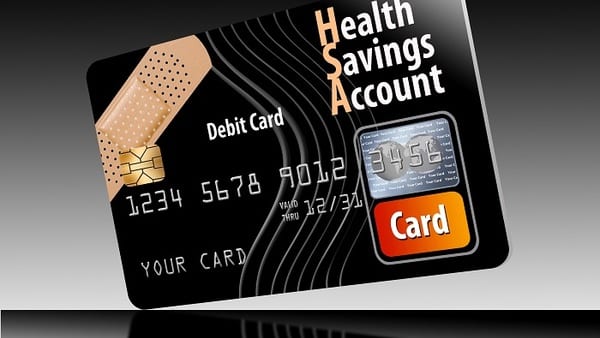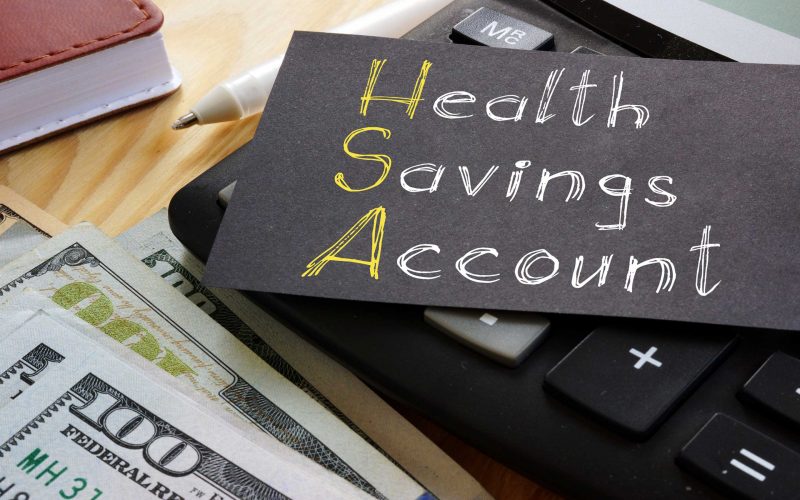The rules for health savings accounts are easy to understand. Furthermore, they are one of the most underappreciated investment accounts open.
They’ve been around since 2003 and offer a slew of fantastic benefits. The most significant advantage is the ability to contribute pre-tax dollars and make them grow tax-free. We’ll go into the advantages in more depth below – there are a lot of them.
A health savings plan also has rules that one must follow to be able to use it effectively. Of course, every tax-advantaged account comes with a set of rules. Hence, we’ll be looking at the rules guiding health savings account (HSA) in 2023 which include both contributions and withdrawals.
Before delving too deeply into the different health savings account laws, let’s first go through the basics of health savings accounts. There are several ways to maximize your health savings account, but the most important thing you can do right now is to begin using it.
What is a Health Savings Account (HSA)?
Simply put, a health savings account (HSA) is a savings account that you can open to pay for out-of-pocket medical expenses and health insurance costs.
To be eligible for a health savings account, the health plan must have a large deductible. If you qualify, you can open an HSA on your own or through your employer.
The most significant advantage of an HSA is that you will make pre-tax contributions to it (from your gross income). As a result, if you contribute to your employer, it will be deducted from your salary before you pay any income tax. If you pay on your own, you can deduct your donations when you file your taxes.
However, the benefit does not end there! You may even withdraw (and use) the funds without paying taxes.
That’s right, you don’t pay taxes on the way in or out. It is, in fact, a tax-free account (unlike 401ks and IRAs, where you have to pay taxes one way or the other).
Furthermore, as we can see, health savings plans have a variety of other useful benefits.
Health Savings Account Rules 2022
Health savings accounts (HSAs) are tax-advantaged accounts that can be used to save money for medical expenses. They are also an ideal vehicle for retirement savings because the money you invest grows tax-free and you can withdraw it for any reason after the age of 65.
However, specific rules are governing who is to use an HSA, how much money you can contribute to your account, and what withdrawals you can make before the age of 65. Here are the main HSA rules you should be aware of. Since the Biden administration doesn’t have any new proposals to amend the health savings account, they are expected to remain unchanged in 2022 and possibly beyond.
HSA Eligibility Rules
And if you have a qualified high-deductible health insurance plan are you have to apply to an HSA (HDHP). The concept of a qualified plan is updated regularly. Your policies will qualify as a high-deductible health plan (HDHP) in 2022 if one of the following conditions is met:
- You have self-only coverage (individual coverage), with a $1,400 annual premium and a $7,500 gross out-of-pocket cap.
- Your family has coverage, and the plan has a $2,800 minimum annual premium and a $14,000 overall out-of-pocket limit.
- You cannot save in an HSA if you do not have an HDHP that satisfies either of these criteria.
Contribution Rules for HSAs
Since HSA donations are made with pre-tax dollars, you can subtract them in the year they are made. However, there are annual caps on the amount you can contribute, which vary regularly. The following rules are the maximum health savings account (HSA) contributions you can make in 2023:
- You will contribute up to $3,600 if you only have self-only coverage.
- If you have family coverage, you’ll contribute up to $7,200.
- You will make an extra $1,000 catch-up donation if you are 55 or older.
Employer HSA donations are part of your annual cap if they are made on your behalf.
Withdrawal Rules for HSAs

Unlike a flexible spending account, you don’t have to use money in an HSA in the year you contribute. You can deposit your HSA funds and leave them in the account to expand for as long as you want.
You are also not subject to mandatory minimum distribution (RMD) rules for an HSA, as you care for other pre-tax accounts such as a 401(k) or conventional IRA.
However, unless you are 65 or older, if you withdraw for any reason other than to cover qualified medical expenses, you will be subject to a 20% penalty. This HSA penalty rule is double the penalty for early 401(k) or IRA withdrawals. In addition to the levy, the money you withdraw from your HSA will be charged as ordinary income.
HSA Reimbursement Rules
You can use the money in your HSA to pay for qualified medical expenses in two ways:
- You’ll be obtaining a debit card that you can use to make transactions.
- You can pay for covered medical services yourself and send receipts for reimbursement.
While using a debit card is more convenient, not all HSA accounts have this option, and not all qualifying medical services are payable by debit card. Keep receipts and accurate records for any out-of-pocket services you pay for so you can send them to your HSA for reimbursement.
HSA Rules after age 65
The big difference after you turn 65 is that you can withdraw money from your HSA for any reason without incurring the usual 20% penalty rule if you don’t use the money for qualifying medical treatment.
If you withdraw money for some excuse other than to pay for qualified medical or dental care, you will still be taxed at the ordinary income tax rate on the distribution. In other words, the distribution would be handled the same as a distribution from a standard IRA or 401(k) (k).
One of the main features that distinguish a health savings account as an outstanding retirement savings account is the right to withdraw funds for any purpose after the age of 65.
Read Also: 401 (k) WITHDRAWALS: Rules and 4 ways to avoid penalties
Simplified Rules for Health Savings Accounts in 2022
Rules, particularly those imposed by the government, are typically complex. We’ve broken it down in layman’s terms so you can take advantage of this fantastic account.
Here are the eight laws to remember…
Rule 1: HSA Contributions are tax-free.
This is a simple rule to follow. It’s more of a perk and a tax break than a rule. As previously noted, you do not have to pay taxes on the money you contribute to an HSA.
Rule 2: HSA Tax-free withdrawals.
Is this a set of rules or a list of benefits?!
Another law and benefit of HSAs are that you can use your money without paying taxes on it (as long as it is used to pay for eligible medical expenses). This account’s earnings and interest are tax-free.
Rule 3: Money rolls over.
Another law for HSAs (which is not valid for FSAs) is that your money remains with you year after year. There is no obligation to use your HSA during the current plan year because your HSA funds roll forward to the next year and will be eligible for use then.
Even if you change jobs or leave a business, your HSA will remain with you. As a result, health savings plans are an excellent long-term saving option.
Rule 4: This option is only available for high-deductible health-care plans.
In 2021, the IRS describes this as a minimum annual deductible of $1,400 and a maximum annual deductible (and out-of-pocket expense) of $7,000 if you are in a self-only plan. As a result, the annual deductible would fall somewhere in that range.
If you have a family coverage plan, your minimum HSA withdrawal rule must be $2,800 and your maximum deductible must be $14,000.
Unfortunately, if you fall outside of these parameters, you will be unable to use an HSA.
Rule 5: HSA Annual contribution limits
For 2021 rules, the annual contribution cap to an HSA for a self-only scheme is $3,600. If you have a family plan, the annual contribution limit is $7,200.
This is the maximum sum you can deposit into this account per year. The only difference is that if you are 55 or older, there is a catch-up donation clause that allows you to contribute an extra $1,000 per year.
Rule 6: Only a few people can use it.
A health savings account can be used by any of the following individuals:
- You
- Your spouse
- Any dependents you claim on your tax return
That’s a lot of adaptabilities! And if your partner has a different health care plan, you will use your HSA funds to pay for it.
Rule 7: Medical costs are the only exception.
You can only use your HSA for medical and healthcare expenses. This is a clear limitation of this account.
The following are examples of eligible medical expenses on which you can use your HSA:
- Common medical expenses, such as health and dental care
- Prescription medication
- …the complete list is here.
You can not use your HSA to pay for:
- Non-medical costs
- Over the counter medicine without a prescription
If you use your HSA for non-medical expenses, you will not only be taxed, but you will also face a 20% penalty.
However, after you reach the age of 65, you can use your HSA for non-medical expenses and will only be taxed on the earnings (you will not face the additional 20 percent penalty).
To cover qualified expenses, most HSAs allow you to use either a debit card provided by the HSA or your own personal card. If you use your own credit card, you must apply for reimbursement through the contract.
Rule 8: Funds may be invested (sometimes)
This rule varies depending on the HSA provider.
Some HSA providers allow you to accumulate funds (once you reach a certain number of funds) in the same way as a 401k does. Others can be able to earn interest. If you need more details, simply contact your HSA provider. Others, such as a savings account, merely pay interest.
If investing is a choice for you, don’t pass it up!
We’ve completed the segment on health savings accounts rules… That wasn’t so bad, was it? If you’ve learned the rules, they’re pretty simple to obey.
Are there any restrictions on using HSA funds for alternative medicine or treatments?
The Internal Revenue Service (IRS) allows the use of HSA funds for alternative medicine or treatments, as long as they are considered qualified medical expenses. However, some alternative treatments may not be covered by insurance, and it’s best to check with the specific HSA administrator for any restrictions.
What is the deadline for contributing to an HSA?
The deadline for contributing to an HSA for the current tax year is typically April 15 of the following year. However, some HSA administrators may have earlier deadline, so it’s best to check with the specific account provider.
Can I use HSA funds for my spouse or dependents’ medical expenses?
Yes, HSA funds can be used to pay for qualified medical expenses for the account holder’s spouse and dependents.
What happens to unused HSA funds?
Unused HSA funds roll over from year to year and do not have to be used by a certain date. The funds can be used at any time for qualified medical expenses, and the account holder can use the funds for any eligible expense, regardless of when the expense was incurred.
What happens to my HSA when I enroll in Medicare?
Once an individual enrolls in Medicare, they are no longer eligible to contribute to an HSA account. However, funds in the account can still be used to pay for qualified medical expenses.
How does an HSA affect my taxes at retirement?
HSA funds can be withdrawn tax-free at any time to pay for qualified medical expenses. If the funds are used for non-medical expenses, they are subject to income tax and a 20% penalty if the account holder is under age 65. After age 65, the 20% penalty is no longer in effect, but the funds are still subject to income tax.
Health Savings Account Rules FAQs
What can I spend my health savings account on?
HSA – You can use your HSA to pay for eligible health care, dental, and vision expenses for yourself, your spouse, or eligible dependents (children, siblings, parents, and others who are considered an exemption under Section 152 of the tax code).
Can I use my HSA for dental fillings?
You can use your Health Savings Account to pay for a wide range of dental treatments. These include teeth cleanings, digital x-rays, fillings, crowns, root canals, dental implants, and even bridges. You can even use the money you save for cosmetic work, such as teeth whitening treatments.
Can I take money out of my health savings account?
Can I withdraw the funds from my HSA at any time? Yes, you can withdraw funds from your HSA at any time. But please keep in mind that if you use your HSA funds for any reason other than to pay for a qualified medical expense, those funds will be taxed as ordinary income, and the IRS will impose a 20% penalty.
Can I buy food with my HSA card?
Yes! You can use your Health Savings Account (HSA) or Flexible Spending Account (FSA) to purchase any Ready, Set, Food!
{
“@context”: “https://schema.org”,
“@type”: “FAQPage”,
“mainEntity”: [
{
“@type”: “Question”,
“name”: “What can I spend my health savings account on?”,
“acceptedAnswer”: {
“@type”: “Answer”,
“text”: ”
HSA – You can use your HSA to pay for eligible health care, dental, and vision expenses for yourself, your spouse, or eligible dependents (children, siblings, parents, and others who are considered an exemption under Section 152 of the tax code).
”
}
}
, {
“@type”: “Question”,
“name”: “Can I use my HSA for dental fillings?”,
“acceptedAnswer”: {
“@type”: “Answer”,
“text”: ”
You can use your Health Savings Account to pay for a wide range of dental treatments. These include teeth cleanings, digital x-rays, fillings, crowns, root canals, dental implants, and even bridges. You can even use the money you save for cosmetic work, such as teeth whitening treatments.
”
}
}
, {
“@type”: “Question”,
“name”: “Can I take money out of my health savings account?”,
“acceptedAnswer”: {
“@type”: “Answer”,
“text”: ”
Can I withdraw the funds from my HSA at any time? Yes, you can withdraw funds from your HSA at any time. But please keep in mind that if you use your HSA funds for any reason other than to pay for a qualified medical expense, those funds will be taxed as ordinary income, and the IRS will impose a 20% penalty.
”
}
}
, {
“@type”: “Question”,
“name”: “Can I buy food with my HSA card?”,
“acceptedAnswer”: {
“@type”: “Answer”,
“text”: ”
Yes! You can use your Health Savings Account (HSA) or Flexible Spending Account (FSA) to purchase any Ready, Set, Food!
”
}
}
]
}
- 401 (k) WITHDRAWALS: Rules and 4 ways to avoid penalties
- 403(b) vs 401(k): Which Is The Better Plan? (+ Pros And Cons)
- 401(a) vs 401(k): 13+ Major Difference to Understand (With Simplified Guide)
- 401(a): Understanding What a 401(a) plan is with Ease
- 403(b): what is 403(b)? (A Definitive Guide And All You Should Know






